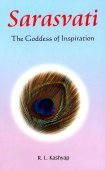Atharva, Atharvā: 10 definitions
Introduction:
Atharva means something in Hinduism, Sanskrit, Hindi. If you want to know the exact meaning, history, etymology or English translation of this term then check out the descriptions on this page. Add your comment or reference to a book if you want to contribute to this summary article.
Alternative spellings of this word include Atharv.
Images (photo gallery)
In Hinduism
Purana and Itihasa (epic history)
Source: archive.org: Puranic Encyclopedia1) Atharva (अथर्व).—Among the Vedas, this has the fourth place. It comprises different kinds of incantations of occult powers for the destruction of enemies. Atharvan the son of Vasiṣṭha was the author of this Veda. In Chapter 6 of the third section of Viṣṇu Purāṇa the following reference is made to Atharvaveda: "Sumantu Maharṣi who was of infinite glory, first taught this Atharvaveda to his disciple Kabandha. (Sumantu Maharṣi was the son of Jaimini, who was the disciple of Vedavyāsa). Kabandha divided Atharvaveda into two parts and communicated them to two Maharṣis named Devadarśa and Pathya. Devadarśa’s disciples were: Medhā, Brahmabali, Śautkāyani and Pippalāda. Pathya had three disciples named Jābāli, Kumudādi and Śaunaka. They also made Atharvaveda compilations. Śaunaka divided his compilation into two and gave one part to Babhru and the other to Saindhava. Muñjikeśa learnt it from Saindhava and divided the compilation first into two and later into three parts. The five divisions of the Atharvaveda—Nakṣatrakalpa, Vedakalpa, Saṃhitākalpa, Āṅgirasakalpa and Śāntikalpa, were made by Muñjikeśa. Nakṣatrakalpa contains Brahma’s works: Saṃhitākalpa contains Mantra Vidhi; Āṅgirasakalpa contains ābhicāra and Śāntikalpa contains taming of horses, elephants etc.
The mantras (incantations) in Atharvaveda and their uses are given below:— (See full article at Story of Atharva from the Puranic encyclopaedia by Vettam Mani)
2) Atharvā (अथर्वा).—This muni is referred to in Mahābhārata, Udyoga Parva, Chapter 43, Verse 50, as a professional chanter of Chandaveda. Once under the curse of Bhṛgu Maharṣi, Agni hid himself under the sea. (See "AGNI"). At that time, it was Atharvā who, at the suggestion of the Devas, went under the water and discovered Agni. (Mahābhārata, Vana Parva, Chapter 222, Verse 8).
2) Atharvā recovered Agni, and re-created the worlds which were lying dormant owing to the absence of fire. (Mahābhārata, Vana Parva, Chapter 222, Verse 19).
2) Atharvā was born from Brahmā’s face. His wife was Śānti, the daughter of Kardama. Citti was another name for Śānti. But there are some Purāṇas which refer to Citti as another wife of Atharvā. Also, there are Purāṇas which say that Atharvā was Aṅgiras himself.
3) Atharvā (अथर्वा).—This name has been used as a synonym of Śiva. (Mahābhārata, Anuśāsana Parva, Chapter 17, Verse 91).
4) Atharvā (अथर्वा).—In Ṛgveda another Atharvā may be seen. It is said that he was the author of the Atharvaveda. After learning Brahmavidyā from Brahmā, it was this Atharvā who first brought fire to the earth from heaven. Atharvā had two wives named Śānti and Citti. This Atharvā was the same person as Atharvaṇa, the son of Vasiṣṭha. (Bhāgavata, 4th Skandha, Chapter 1).
Source: Cologne Digital Sanskrit Dictionaries: The Purana IndexAtharvā (अथर्वा).—A Laukikāgni; is Bhṛgu; father of Darpahā. Belongs to Dadhyaṅgātharvaṇa category.*
- * Vāyu-purāṇa 29. 8, 9; Brahmāṇḍa-purāṇa II. 12, 9.

The Purana (पुराण, purāṇas) refers to Sanskrit literature preserving ancient India’s vast cultural history, including historical legends, religious ceremonies, various arts and sciences. The eighteen mahapuranas total over 400,000 shlokas (metrical couplets) and date to at least several centuries BCE.
Languages of India and abroad
Sanskrit dictionary
Source: DDSA: The practical Sanskrit-English dictionaryAtharva (अथर्व).—= अथर्वन् (atharvan) See below.
Derivable forms: atharvaḥ (अथर्वः).
Source: Cologne Digital Sanskrit Dictionaries: Shabda-Sagara Sanskrit-English DictionaryAtharvā (अथर्वा) or Atharvvan or Atharvvā or Atharvan.—1. A Brahman. 2. A name of Vasishtha. n. (rva) The name of the fourth Veda. E. atha an auspicious particle ṛ to go, and vanipa aff.
Source: Cologne Digital Sanskrit Dictionaries: Monier-Williams Sanskrit-English Dictionary1) Atharva (अथर्व):—[from atharvan] 1. atharva (in [compound] for atharvan).
2) [from atharvan] 2. atharva m. Name of Brahmā’s eldest son (to whom he revealed the Brahma-vidyā), [Muṇḍaka-upaniṣad]
Source: Cologne Digital Sanskrit Dictionaries: Goldstücker Sanskrit-English DictionaryAtharva (अथर्व):—m.
(-rvaḥ) A proper name of the eldest son of Brahmā, to whom Brahmā revealed the Brahmavidyā (q. v.) or knowledge of God. See atharvan. E. See atharvan of which it is an abbreviated form.
[Sanskrit to German]
Sanskrit, also spelled संस्कृतम् (saṃskṛtam), is an ancient language of India commonly seen as the grandmother of the Indo-European language family (even English!). Closely allied with Prakrit and Pali, Sanskrit is more exhaustive in both grammar and terms and has the most extensive collection of literature in the world, greatly surpassing its sister-languages Greek and Latin.
Hindi dictionary
Source: DDSA: A practical Hindi-English dictionaryAtharva (अथर्व) [Also spelled atharv]:—; ~[veda] (nm) the fourth and the last of the Vedas.
...
Kannada-English dictionary
Source: Alar: Kannada-English corpusAtharva (ಅಥರ್ವ):—
1) [noun] a Hindu of a particular caste traditionally assigned to the priesthood, esp. one who worships fire; a Brāhmaṇa.
2) [noun] name of a sage who is said to have first brought the fire from heaven, recited prayers and the author of the fourth Veda.
3) [noun] the fourth of four canonical collections of hymns, prayers and liturgical formulas,which has large number of forms of imprecations for the destruction of enemies and also contains prayers for safety and averting mishaps, evils, sins.
Kannada is a Dravidian language (as opposed to the Indo-European language family) mainly spoken in the southwestern region of India.
See also (Relevant definitions)
Starts with (+53): Atarvai, Atarvanam, Atharvabhashya, Atharvabhuta, Atharvachandas, Atharvadhipa, Atharvahridaya, Atharvakushala, Atharvamantragana, Atharvamantranukramani, Atharvan, Atharvana, Atharvanacandrakalitantra, Atharvanagrihya, Atharvanagrihyaprayoga, Atharvanakelasa, Atharvanakhanda, Atharvanaparishishta, Atharvanapramitakshara, Atharvanaprayoga.
Full-text (+5963): Atharvana, Veda, Atharvaveda, Atharvan, Atharvani, Laukikagni, Gopatha, Brahmaveda, Atharvva, Atharvvan, Navaprabhramshana, Atharvashikha, Atharvavid, Uddhriti, Atharvavat, Atharvabhuta, Arataki, Apakama, Samsic, Amitrasena.
Relevant text
Search found 139 books and stories containing Atharva, Atharvā; (plurals include: Atharvas, Atharvās). You can also click to the full overview containing English textual excerpts. Below are direct links for the most relevant articles:
Historical Elements in the Matsya Purana (by Chaitali Kadia)
Dynasty of Agni < [Chapter 6 - Human history in the Matsya-Purāṇa]
Varṇa (3): The Vaiśyas < [Chapter 5 - Cultural history in the Matsya-Purāṇa]
Position of Purāṇas in the Sanskrit Literature < [Chapter 1 - An Introduction of the Purāṇas]
The Skanda Purana (by G. V. Tagare)
Chapter 202 - Bhartṛyajña’s Decision < [Section 1 - Tīrtha-māhātmya]
Chapter 176 - Origin of Kaṃsāreśvara (Kaṃsāra-īśvara) < [Section 1 - Tīrtha-māhātmya]
Chapter 115 - Gotras of Sages < [Section 1 - Tīrtha-māhātmya]
Atharvaveda and Charaka Samhita (by Laxmi Maji)
Introduction to the Vedas < [Chapter 1 - Introduction]
Maṇis (medical amulets) in the Atharva Veda < [Chapter 3 - Diseases and Remedial measures (described in Atharvaveda)]
5a. Worm infestation (Kṛmi) in the Atharvaveda < [Chapter 5 - Diseases and Remedies in Atharvaveda and Caraka-Saṃhitā]
The Vishnu Purana (by Horace Hayman Wilson)
Chapter IV - Division of the Veda, in the last Dvapara age by the Vyasa Krishna Dvaipayana < [Book III]
Chapter VI - Division of the Sama-veda < [Book III]
Chapter V - Three kinds of worldly pain (inseparable, incidental and superhuman) < [Book VI]
Rig Veda (translation and commentary) (by H. H. Wilson)
Satapatha-brahmana (by Julius Eggeling)
Kāṇḍa XI, adhyāya 5, brāhmaṇa 6 < [Eleventh Kāṇḍa]
Kāṇḍa IV, adhyāya 4, brāhmaṇa 4 < [Fourth Kāṇḍa]
Kāṇḍa I, adhyāya 2, brāhmaṇa 1 < [First Kāṇḍa]
Related products




